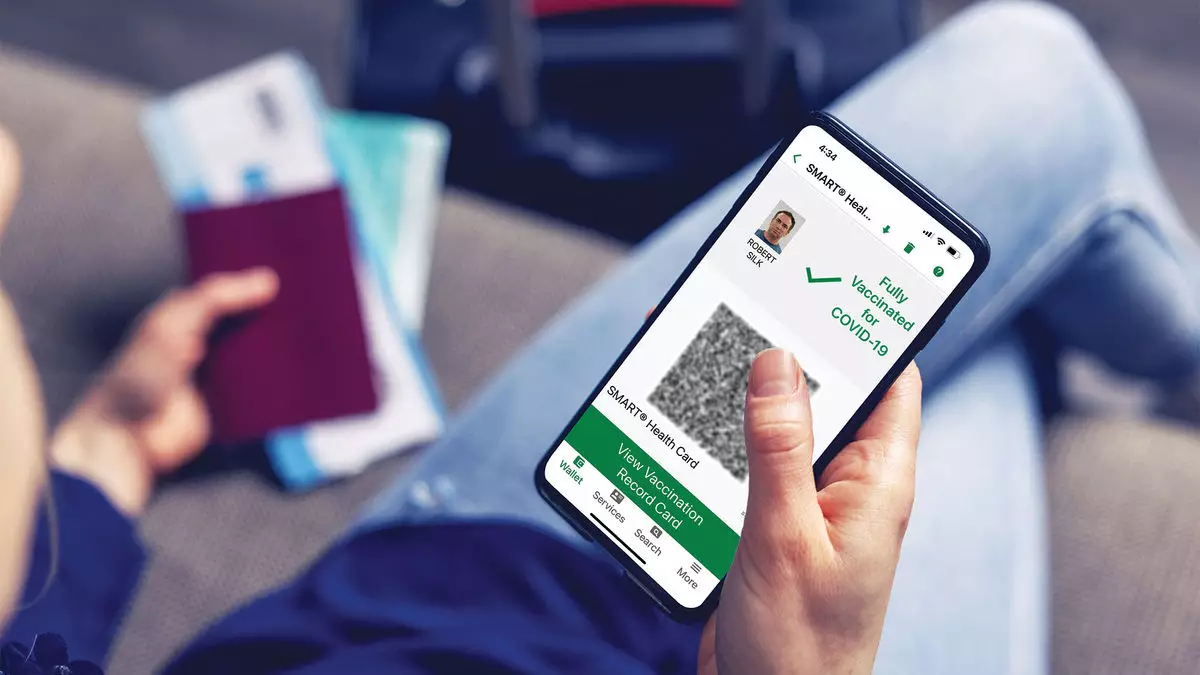Recent events, such as the resurgence of mpox in central Africa, starkly remind us of the fragility of global health security. As public health crises surface with increasing frequency, we are left reflecting on the lessons learned during the COVID-19 pandemic. Disease outbreaks, whether new or previously controlled, have the potential to disrupt daily life and international travel. However, the groundwork laid in enhancing vaccination credentialing during the pandemic gives hope for more robust responses in the face of future health emergencies.
Heather Roth, the immunization branch director of Colorado’s Department of Public Health & Environment, underscores this sentiment by asserting that once a challenging framework is established, it becomes significantly easier to adapt it for future needs. The introduction of digital immunization credentials created a systematic way to keep vaccination status accessible and verifiable—vital information for various sectors, including air travel and border control.
The widespread acceptance of digital vaccination cards, known as Smart Health Cards, has gained traction since their initiation during the COVID crisis. More than 25 states in the U.S. have embraced this system, allowing individuals to easily present vaccination status through secure QR codes. Notable organizations like the Commons Project have played crucial roles in developing these standards that ensure interoperability and reliability. These digital credentials not only facilitate travel but also foster confidence among travelers and health officials by ensuring that vaccination data is accurate and verifiable.
Countries like Canada and Japan have recognized these Smart Health Cards, demonstrating a global consensus to standardize how vaccination information is stored and shared. The recognition from the World Health Organization (WHO) affirms the credibility of this digital vaccination infrastructure, which could be adapted and expanded as needed in response to emerging public health threats.
Anticipating Future Health Emergencies
Experts suggest that the current global state is merely a precursor to possible future health crises. The recent WHO declaration of mpox as a public health emergency underscores the need for quick adaptability in our health systems. The versatility of the Smart Health Card system means that should new vaccinations become necessary—for instance, against bird flu—updating existing QR code systems would be a relatively straightforward matter.
This adaptability experienced during the pandemic has left a legacy that can be utilized to preemptively manage future outbreaks. For example, digital health passes that were developed by airlines and public health agencies can be renewed and modernized to incorporate new vaccine information, significantly easing the burden on travelers during health emergencies.
Beyond COVID-19: Future Applications of Digital Health Records
While the existing QR codes predominantly cover COVID-19 vaccinations, the infrastructure is poised for growth. States like New York have already extended these digital credentials to other vaccinations, such as for the flu, suggesting a broader application for digital health records.
Moreover, the ability to access digital vaccination histories through platforms like Docket can alleviate last-minute travel stress, particularly in regions where specific vaccinations—like yellow fever—are mandated. As digital records become more commonplace, travelers can find themselves with all necessary health information at their fingertips, minimizing the risk of being caught unprepared amid unexpected travel requirements.
Expanding the utility of digital health records is essential for international travel, especially regarding unexpected medical needs. The International Patient Summary (IPS) initiative aims to create a seamless way for individuals to share their comprehensive health information with medical facilities worldwide. Through this initiative, countries are working together to ensure that digital health data can be interpreted irrespective of language barriers or differing data structures.
Currently, obtaining an IPS QR code through participating organizations enables individuals to present their health information quickly and effectively when seeking care abroad. Early implementations, such as the coordinated efforts by Malaysia’s health ministry for Hajj pilgrims, showcase how this system can function effectively, allowing for timely sharing of health data in crucial situations.
The evolution of vaccination credentials and digital health records during the COVID-19 era presents a promising future for managing public health challenges. As we face the inevitability of future health emergencies, the ability to swiftly adapt our health systems with standardized, digital tools will be crucial. By embracing technology, we not only enhance our preparedness but also empower individuals with greater control over their health information, ultimately leading to a more resilient global health landscape.


Napsat komentář